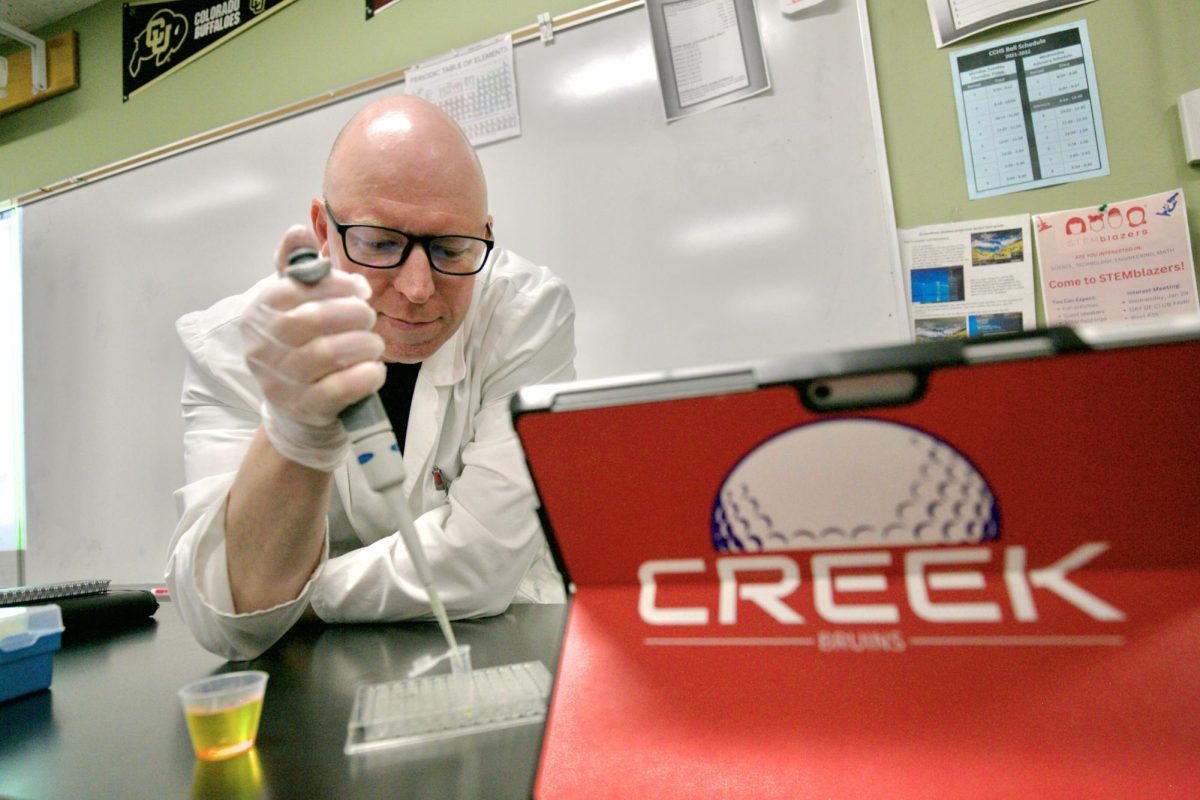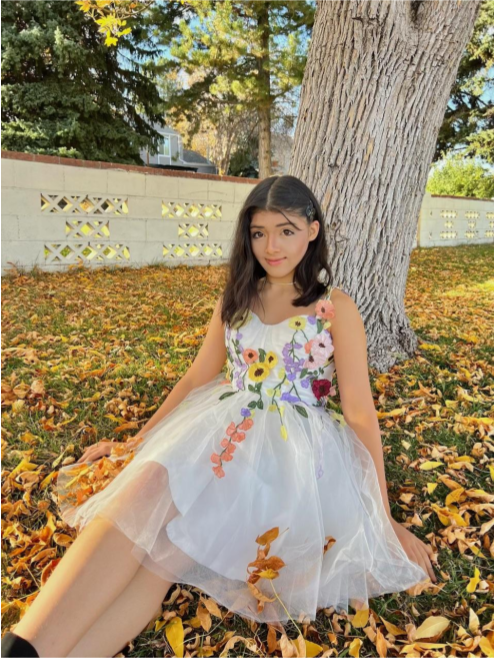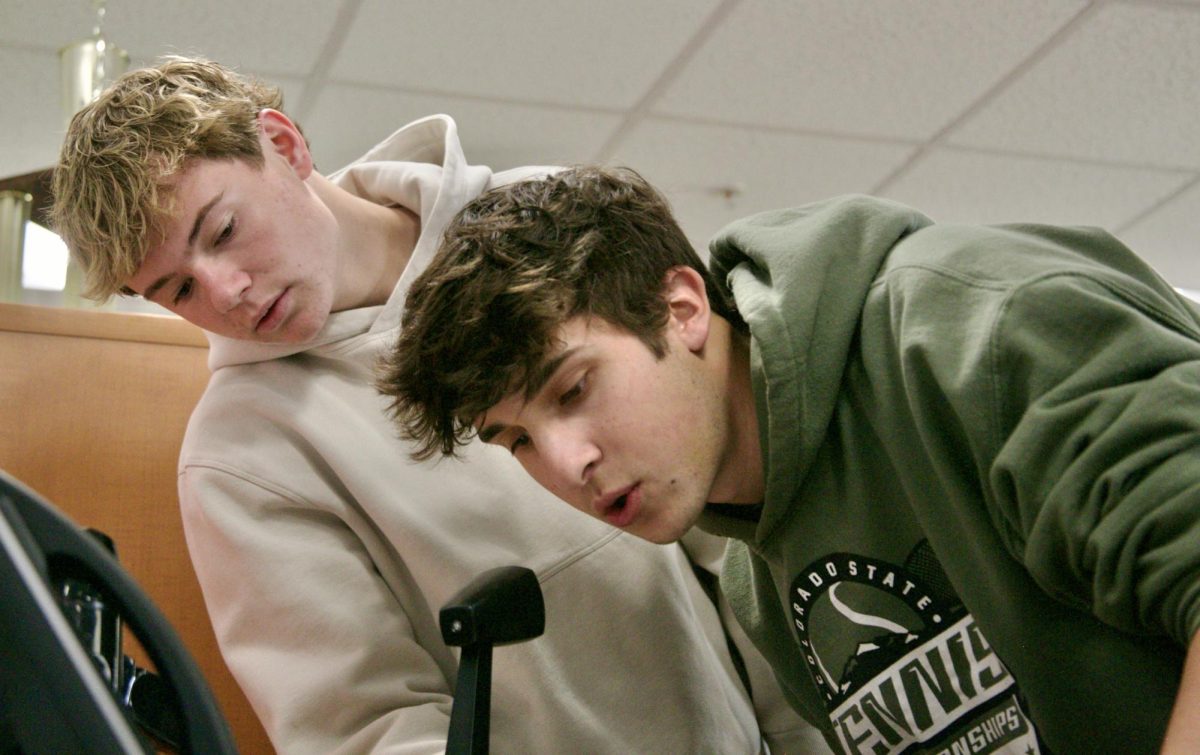One day, he’ll be teaching how to use a micropipette. Another, he’ll be coaching with a 9-iron. But wherever biology teacher and boys golf coach Dustin Neel has the chance to help students, he uses his college education and life experiences to translate into mental health and study habits.
He already has a master’s degree in microbiology from Mississippi State. Now, he’s working to earn a PhD in performance psychology at Grand Canyon University (GCU).
“[Performance psychology] allows people to have the skill set to deal with the nervous feelings one has before performing,” Neel said. “When I was playing sports growing up, it was assumed that athletes could do that, but what we’re learning is that athletes can be trained to do this.”
While he focuses on the athletic side of the discipline, it can also be used for business and performing arts. It’s finding the ability to control emotions and behaviors to succeed in high-pressure situations.
Neel’s proposal for a study to earn his PhD was approved by the GCU institutional review board on May 15. The study compares how collegiate athletes who undergo biofeedback training with a practitioner feel and perform vs. athletes who don’t.
“The idea is that we can start to learn how we can support athletes in a way that is more holistic and healthier for their mental well being,” Neel said. “They’re going to be completing surveys about their ability to regulate their behaviors, their emotions, and they’re also going to be able to rate their perceived sport success.”
But the PhD can’t take up 100% of his focus – he still had classes to teach and teams to coach.
“I started this degree program about five years ago, and I just completed my fourth year as [boys golf] head coach, and I would say it’s had a huge impact on how I coach my team,” he said. “It gives us a competitive advantage over other teams that don’t put in work into the mental side.”
His golfers have seen his expertise has advantages, too.
“He’s really helped me grow my mental game,” sophomore JV golfer Brody Rasmussen said. “[He] gives kids who struggle mentally on the course or off the course more of a resource to go talk to and really make sure that they can be prepared.”
One of Neel’s students, Junior Eli Gompers, still sees benefits in his athletic strategies from playing baseball, even though he isn’t on Neel’s golf squad.
“Your biggest competitor is yourself,” Gompers said. “If you’re in the right mindset, then you’re in the best spot that you possibly can.”
Neel tries to translate his skills from his years of college into training his students academically as well. Some techniques come from performance psychology, some come from his years as a student in earth science, biology, and microbiology.
“I had to learn to overcome obstacles,” Neel said. “I had to learn to be disciplined. I had to learn to set goals, and I had to overcome adversity, and if you’re able to persevere through that, you’re going to be successful in anything you do.”
As for study habits, he tells his students stories of drawing elaborate diagrams and studying through visuals. One of his classic sayings in the class is “do a little, a lot.”
“Break down big tasks into small tasks, and do a little bit at a time,” he said.
Rasmussen has seen that those techniques have provided great help.
“He grew my study habits and made sure that I can always stay on top of my work,” Rasmussen said. “He also gave me a bunch of new learning strategies that will help me through other science courses.”
He also promotes collaboration beyond group projects.
“In college, I started figuring out that finding study groups with like minded students was a huge help. I think sometimes we feel like we need to study in isolation because we’re graded in isolation,” Neel said. “The biggest thing I would encourage students to do is to connect with each other and utilize each other, because each person has unique skills and can share those with other people.”








